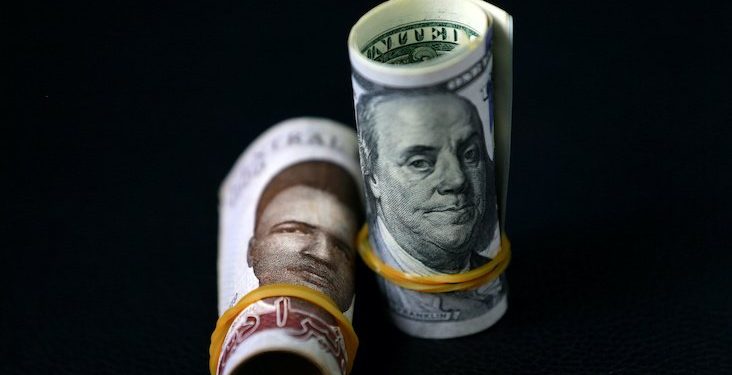Nigeria’s new naira-for-dollar plan to encourage remittance payments will do little to meet its stated aim of stabilising the currency, analysts say.
Central bank Godwin Emefiele, who announced the introduction of an incentive of N5 for every $1 of remittances on 6 March, said the aim was to increase incoming flows of foreign currency, and in the process support exchange-rate stability.
The scheme amounts of an incentive of about 1% in naira to send dollars home. In itself, that’s “unlikely to contribute to currency stability”, says Anaïs Auvray, West Africa consultant at the Africa Matters advisory firm in London. “It enhances the probability that more naira will need to be printed, increasing the risk of further devaluation against the dollar.”
According to PwC, remittance flows to Nigeria are set to almost double from $18.37bn in 2009 to $34.89bn in 2023. The country is one of the largest destinations for remittance flows in the region, with personal remittances totalling 5.3% of GDP in 2019 compared with a Sub-Saharan African average of 2.8%, according to the World Bank.
The policy could make a small contribution to higher remittance inflows, says William Attwell, senior country risk analyst at Fitch Solutions in London.
- But recovering labour markets in countries with large diaspora communities, such as the US and UK, would “arguably be a more important driver,” he says.
- “We saw this during the global financial crisis, when personal remittances to Nigeria fell by around a billion dollars, but then swiftly recovered in 2010.”
Shoring up the naira
But some are optimistic about the plan’s potential. There is a possible spin-off if the incentive encourages Nigerian banks to design more financial-services products for the diaspora, says Moses Ojo, chief economist at PanAfrican Capital Holdings in Lagos.
- The policy will “definitely achieve its objective to some extent because it will encourage Nigerians in the diaspora to remit foreign exchange home,” Ojo says. He expects the policy will “contribute significantly” to the level of foreign reserves.
- But Attwell argues that the positive impact of higher inflows will be “more than offset by rising dollar demand amid persistent pressure on the current account.”
In the short to medium term, the Nigerian authorities will be forced to resort to other forms of forex controls if they are to halt the outflow of foreign currency and keep the naira at its current rate, Auvray says. These steps may include further limiting foreign cash withdrawals and banning Nigerians from depositing US dollars into their domestic accounts, she adds.
Auvray argues that the poor economic outlook means that Abuja cannot allow the naira to float freely. Nigeria has just emerged from recession and the IMF expects real GDP growth in 2021 at just 1.5%. On top of that, 11 million more Nigerians are expected to fall into poverty by 2022 as a result of the COVID-19 pandemic.
Ultimately, says Auvray, the prospect of the naira becoming a stable currency will be “highly dependent on the Nigerian government’s capacity and commitment to diversify and transform its economy and shift the country from its dependence on oil revenues.”
Bottom line
The incentive may encourage innovation in financial services, but won’t help the authorities defend the naira’s value.








